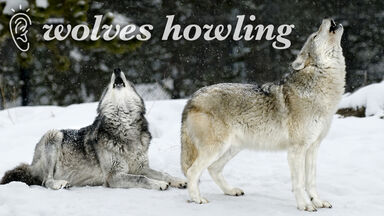What Are Sensory Details In Writing
Examples of Strong Sensory Words for Stellar Writing
Writing with vivid sensory language can make average writing extraordinary. But in order to fill out a descriptive paragraph, you need great options to describe each sense. Read on for examples of strong sensory words that can enhance your writing.
 girl smelling fresh-cut grass
girl smelling fresh-cut grass
Examples of Sensory Words
Sensory language allows a reader to feel like they are right there in a scene. The smell of grass, for example, is less effective than a sentence that includes the earthy smell of fresh-cut grass. Keep reading for lists of words that heighten all five senses: sight, hearing, touch, taste, and smell.
Sensory Words for Sight
Get past ugly and beautiful when describing what a character sees. You might also consider words that express the opposite of sight such as dark words. If you need more choices for sensory language that describes the appearance of things, there are lots of wonderful words in the English language. For example:

| Beautiful Sight Words | Unattractive Sight Words |
| billowy blushing bright crystalline dazzling elegant enchanting glamorous gleaming glistening glittering glowing gorgeous illuminated lustrous opaque pristine radiant resplendent sparkling shimmering shiny twinkling vibrant vivid | bloated blurry bulbous bulky craggy crooked dingy disheveled drab dreary dull faded filthy flashy gaudy globular gloomy grotesque hazy homely misshapen scummy shapeless unsightly wrinkled |
Many of these words depend on the item you are describing. Words like filthy and misshapen are excellent ways to describe both an unlikeable person and a lumpy couch. However, while words like flashy and gaudy have negative connotations, they might not present the same undesirable picture.
Sensory Words for Hearing
Finding the right sensory word to describe a sound can be tricky. It depends on whether the sound is quiet or loud and how the reader should react upon "hearing" it. Check out these words, grouped by volume, that work as strong descriptors for your literary noises.

| Quiet Hearing Words | Loud Hearing Words |
| buzzing chirping clicking clinking cooing crackling creaking croaking grumbling grunting gurgling hissing peeping rumbling rustling sizzling snarling swishing ticking tinkling thumping wheezing whimpering whining whispering | barking bawling bellowing blaring booming cackling chattering cheering chiming clanging honking howling jabbering ranting raving roaring screaming screeching shouting shrieking slamming snoring squawking squealing yelping |
Determining whether these hearing words are positive or negative depends on the story context. Whispering sweet nothings to each other might set a romantic tone, but hearing a whispering voice through your walls sets the tone for a horror story.
Sensory Words for Touch
Would you rather sleep on a fluffy, fleecy pillow or an abrasive, scratchy one? Choosing the right touch sensory words can make a reader feel very comfortable – or, if you'd rather, very uncomfortable. Try swapping out boring words for these descriptors:

| Pleasant Touch Words | Unpleasant Touch Words |
| bubbly chilled cool cottony creamy cushioned feathery fine fleecy fluffy foamy furry fuzzy gossamer lacy luxurious satiny silky smooth soft summery tickling velvety warm woolly | abrasive balmy bristly bumpy chilly clammy coarse crawly creepy gooey greasy gritty humid itchy lumpy moist mushy prickly scratchy slimy slippery spongy sticky sweaty tepid |
Watch out for the word moist on this list. It may be the perfect word to describe a kitchen sponge or a mist-covered umbrella, but many readers have a strong aversion to the word. It's best used in unpleasant situations!
Sensory Words for Smell and Taste
Smell and taste are separate senses. However, you'll often find that adjectives that work with taste can also describe a smell. Use these sensory words to describe a flavorful, aromatic meal or a sharp, pungent smell.

| Delicious Taste Words | Disgusting Taste Words |
| ambrosial aromatic buttery delectable downy flavorful fragrant fresh fruity gingery hearty minty peppery refreshing ripe savory scented spicy sugary sweet tangy tantalizing tasty tempting zesty | acidic acrid bitter bland briny burnt fetid flavorless grainy medicinal metallic moldy musty nauseating pungent putrid rancid rank rotten sharp sour spoiled stale tasteless vinegary |
Like everything in life, word choice depends on your taste. A gingery smell coming from the neighbor's apartment might remind one character of their mother's cooking. However, a ginger-averse roommate might prefer a spicy or fruity aroma instead.
Imagery In Literature
Now that you've read through these sensory words, you may notice the vivid descriptions in the next book you read. But defining imagery is not as simple as it seems! Read an article about the five different types of imagery that you're likely to find in literature.
- high school
- middle school
- college
What Are Sensory Details In Writing
Source: https://examples.yourdictionary.com/examples-of-strong-sensory-words-for-stellar-writing.html
Posted by: davissurprood1941.blogspot.com

0 Response to "What Are Sensory Details In Writing"
Post a Comment